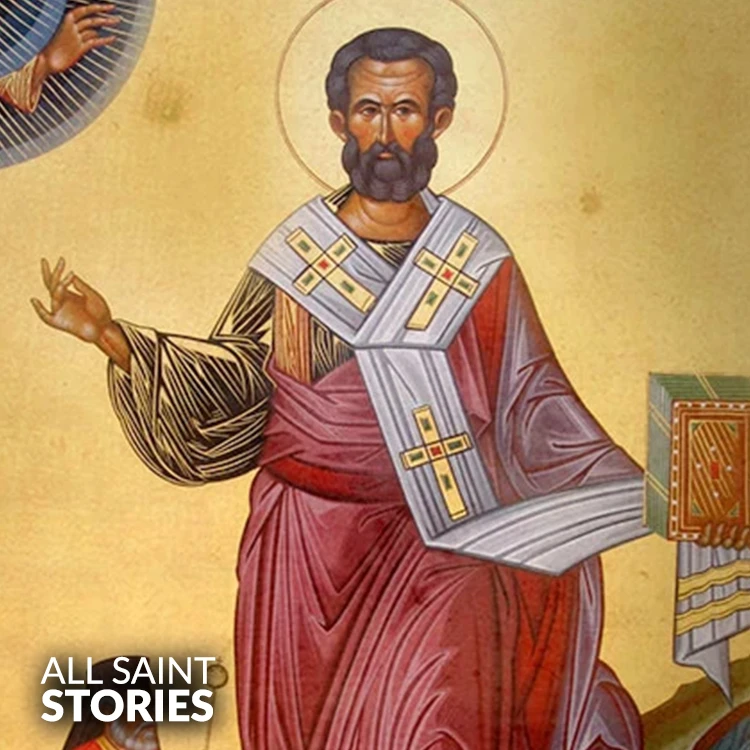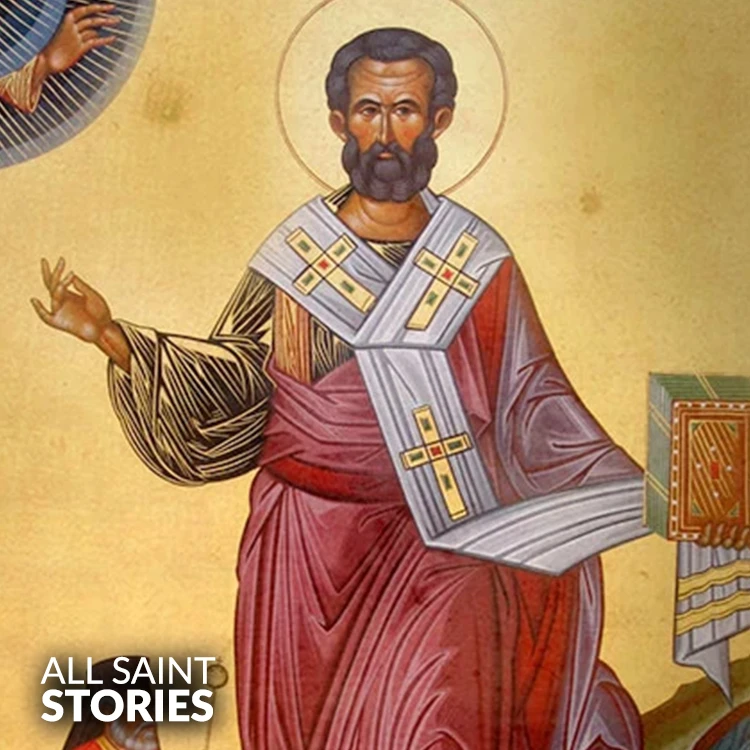"Saint Barnabas, faithful servant of the Lord, You spread the Good News with courage and love. Intercede for us that we may walk in faith, Live with compassion, and share God’s love with all. Pray for us, that we may be filled with the same spirit of joy and dedication, And always serve the Lord with an open heart. Amen."
ST. BARNABAS
ST. BARNABAS

St. Barnabas was an early Christian disciple and one of the first missionaries of the Church. He was a companion of St. Paul and played a crucial role in spreading Christianity among the Gentiles. He is honored as the founder of the Church in Cyprus and is celebrated for his faith, generosity, and evangelization.
St. Barnabas, originally named Joseph, was born in Cyprus to a Jewish family of the Levite tribe. He was one of the early converts to Christianity and was given the name "Barnabas," meaning "son of encouragement," by the apostles due to his generosity and uplifting spirit. He sold his property and donated the proceeds to the early Christian community, demonstrating his commitment to Christ's teachings.
Barnabas was a key figure in welcoming and supporting Saul of Tarsus (later St. Paul) after his dramatic conversion. While many in the Christian community feared Saul because of his past persecution of Christians, Barnabas vouched for him and introduced him to the apostles. This act of trust and encouragement helped pave the way for Paul’s influential ministry.
Barnabas and Paul embarked on missionary journeys together, preaching to Jews and Gentiles alike. They traveled to Antioch, where they established a strong Christian community, and later journeyed through Cyprus and Asia Minor, converting many and strengthening the faith of believers. Barnabas was instrumental in advocating for the inclusion of Gentiles in the Christian faith without requiring them to follow Jewish laws, a stance that led to discussions at the Council of Jerusalem.
Eventually, Barnabas and Paul had a disagreement over John Mark, leading to their separation. Barnabas took John Mark and continued his missionary work, particularly in Cyprus, where he is traditionally credited as the founder of the Church. His commitment to spreading the Gospel remained unwavering, and he continued to teach and convert people to Christianity.
According to tradition, Barnabas was martyred around 61 AD in Salamis, Cyprus. He was reportedly stoned to death by Jewish opponents of Christianity. His relics were later discovered in the 5th century, and he has since been venerated as a saint. His legacy as a preacher, leader, and encourager remains significant in Christian history.
Video Not Found
The information on this website is compiled from various trusted sources. While we aim for accuracy, some details may be incomplete or contain discrepancies.
If you notice any errors or have additional information about this saint, please use the form on the left to share your suggestions. Your input helps us improve and maintain reliable content for everyone.
All submissions are reviewed carefully, and your personal details will remain confidential. Thank you for contributing to the accuracy and value of this resource.
Credits & Acknowledgments
- Anudina Visudhar (Malayalam) – Life of Saints for Everyday
by Msgr. Thomas Moothedan, M.A., D.D. - Saint Companions for Each Day
by A. J. M. Mausolfe & J. K. Mausolfe - US Catholic (Faith in Real Life) – Informational articles
- Wikipedia – General reference content and images
- Anastpaul.com – Saint images and reflections
- Pravachaka Sabdam (Malayalam) – Saint-related content and insights
We sincerely thank these authors and platforms for their valuable contributions. If we have unintentionally missed any attribution, please notify us, and we will make the correction promptly.
If you have any suggestion about ST. BARNABAS
Your suggestion will help improve the information about this saint. Your details will not be disclosed anywhere.
© 2026 Copyright @ www.allsaintstories.com




 English
English
 Italian
Italian
 French
French
 Spanish
Spanish
 Malayalam
Malayalam
 Russian
Russian
 Korean
Korean
 Sinhala
Sinhala
 Japanese
Japanese
 Arabic
Arabic
 Portuguese
Portuguese
 Bantu
Bantu
 Greek
Greek
 German
German
 Dutch
Dutch
 Filipino
Filipino